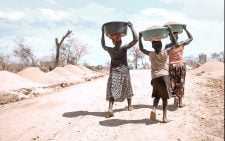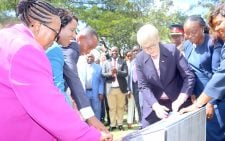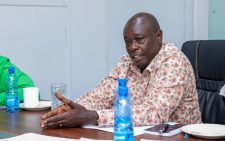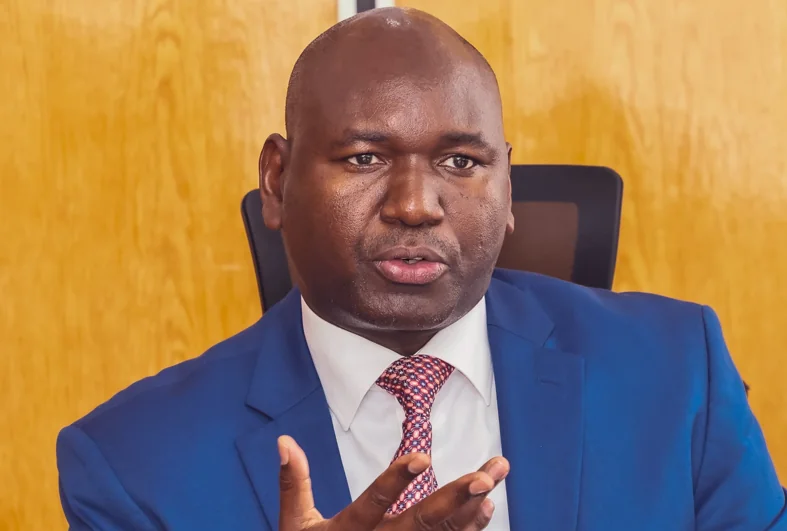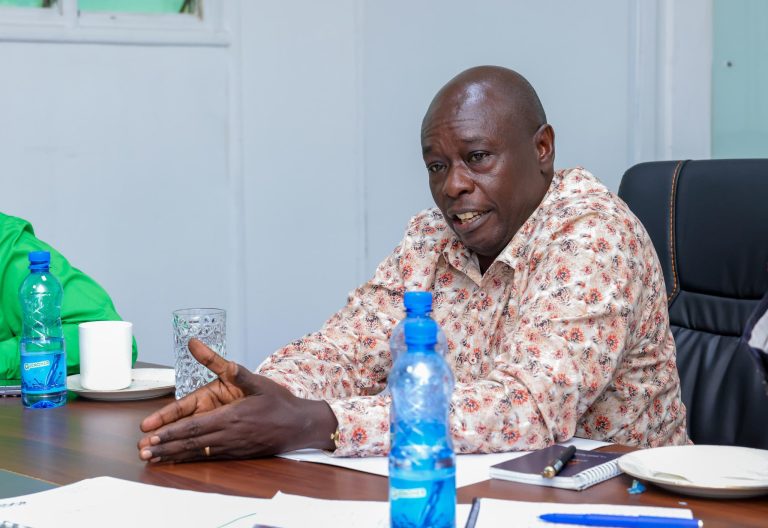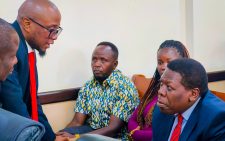Brazil’s diplomacy mission to break climate talks stalemate
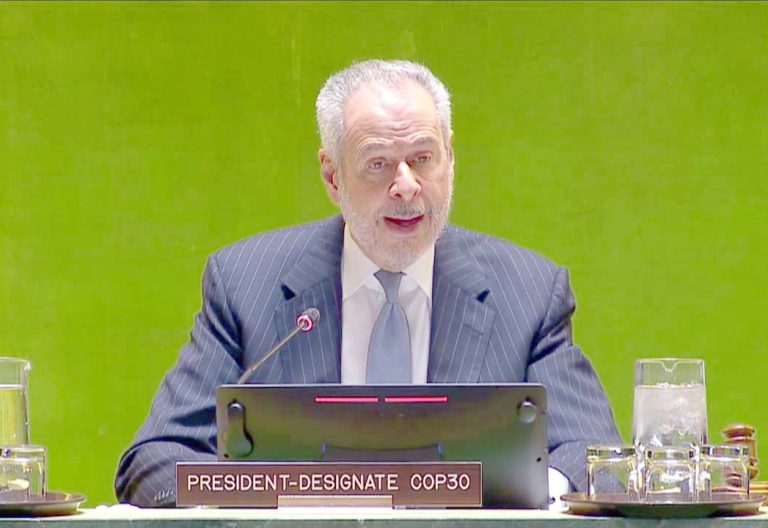
With just six months before the United Nations Convention on Climate Change (COP30), host Brazil is on a mission to secure, through diplomacy, agreements on two issues that were left unresolved at COP29.
The tense negotiations at the climate summit in Baku, Azerbaijan, failed to agree on a just transition from fossil fuels and the global stocktake of government climate action.
Brazilian diplomats presiding over November’s climate summit in the Amazonian rainforest city of Belém will be taking their mission to broker a deal on these two critical issues to the mid-year climate negotiations in Bonn, Germany.
Lead climate diplomat Lilian Chagas said last week she is seeking “real advances” in the Bonn sessions on the Just Transition Work Programme (JTWP) and recommendations from the 2023 Global Stocktake (GST) for decisions to adopt them for approval at the COP30 climate summit in Brazil.
The JTWP is a series of dialogues on how to make the transition to a greener world fair while the GST discussions focus on how the world’s governments should respond to being collectively off-track to meet the critical goal of limiting global warming to 1.5 degrees Celsius (°C) above pre-industrial levels adopted in the 2015 Paris Agreement.
Negotiators at the UN Climate Week in Panama last week held discussions related to these two issues, such as the role of Indigenous people and communities, economic drivers and social protections.
At COP29 in Baku last year, governments were sharply divided on what aspects of fairness the JTWP should tackle and whether finance should be included, as well as on whether transitioning away from fossil fuels should be mentioned in texts on how to take the GST forward.
Reviewing progress
Speaking to reporters last week, Chagas said these issues had not been settled at COP29 because separate talks there on a new finance goal had proven so lengthy and difficult, but indicated that she was now trying to bring a “sense of urgency” to officials.
“These decisions, at this point of the year, are something that will show that the COP process works and is resilient,” she said, adding that she wants to “early harvest” some of the decisions in order not to leave everything for COP30 in November.
COP30 President-designate André Aranha Corrêa do Lago confirmed as much in his third open letter to negotiators released last Friday.
The GST was a review of progress on climate change carried out in 2023, which found that, while government action had reduced the amount of global warming expected, it was still insufficient to limit average temperature rise to 1.5°C.
Governments agreed jointly at COP28 in Dubai to respond to this by calling on each other to take measures like tripling renewable energy capacity and transitioning away from fossil fuels in energy systems.
But at COP29 last year, they failed to include the same language on renewables and fossil fuels in the outcomes of a planned “UAE dialogue” on how to implement the recommendations of the GST. Saudi Arabia, which Corrêa do Lago visited last Friday, opposed any mention of fossil fuels in formal texts at COP29.
As the Baku summit ended without agreement on the GST, Chile’s lead negotiators expressed concern at attempts to backtrack the agreements made last year.
The COP30 Presidency said in its latest letter that the GST is “our guide to Mission 1.5°C”, a collective roadmap to keep to the 1.5°C warning limit – and responding to it should include accelerating the global energy transition and halting and reversing deforestation and forest degradation by 2030.
“We must support one another to advance collectively on tripling renewable energy capacity globally, doubling the global average annual rate of energy efficiency improvements, and transitioning away from fossil fuels in energy systems, in a just, orderly, and equitable manner,” the letter said.
COP30 CEO Ana Toni told negotiators at Panama’s Climate Week that governments must now figure out the details if they plan to achieve the GST, discussing options for support in the form of new regulations, finance and capacity-building.
“If in the past people thought that federal governments going from COP to COP and just having the (Paris Agreement) rulebook would be enough, we know that it is not enough. We need to go from commitments from companies, governments and civil society now to action,” Toni emphasised.
Mexican lead negotiator Camila Zepeda welcomed this approach, saying the Dubai agreement would be the “north star” of Mexico’s new nationally determined contribution (NDC), an emissions-cutting plan that all countries must deliver before September.
Real outcomes
Andreas Sieber, associate director of global policy and campaigns at advocacy group 350.org, praised the Brazilians for “finally pivoting to a language of delivery” and for linking the GST decision to tripling renewables and phasing out fossil fuels.
But “political signals alone won’t deliver outcomes,” he told the authoritative UK-based Climate Home News digital publication, calling on them to “exercise clear, strategic diplomacy and throw their full political weight behind securing an ambitious formal COP30 outcome that actually accelerates the Global Stocktake and energy transition”.
On the Just Transition Work Programme or JTWP, governments failed to reach an agreement in Baku, with divisions on issues of human and labour rights, measures seen as restricting free trade, adaptation and emissions reductions.
A major bone of contention among negotiators was whether to designate finance to support plans for a just transition, with developing countries wanting funding included and developing countries opposed.
Negotiations on this issue fell down the COP29 Presidency’s list of priorities as the talks on the new finance goal became heated.
It set up a last-minute contact group and presented a final draft to save the JTWP, but no agreement was reached.
Corrêa do Lago’s letter last week called the JTWP “a dynamic concept of paramount relevance to people’s lives”, adding “Let’s build on the discussions from COP29 and demonstrate ambition to agree on the scope and focus for this powerful concept”.
Anabella Rosemberg, who follows JTWP discussions for Climate Action Network International, told Climate Home: “The pace of negotiations will have to be accelerated to make up for the lost time since COP29. A solid agreement on just transition is within reach. The COP30 Presidency is sending the right signal. Time for governments to seize the opportunity”.
The third negotiating track highlighted by the new COP30 letter is the Global Goal on Adaptation (GGA), which it said should be “a robust framework to track collective progress.
Corrêa do Lago said that adaptation, meaning becoming more resilient to the impacts of climate change, has become absolutely central because climate change is here.
The GGA is a set of 11 targets for adaptation that government negotiators are hoping to agree on how to measure, using a set of indicators, which they must fix at COP30 after slow progress at COP29.
COP30’s top diplomat said one issue that will not be negotiated is the Baku-Belém roadmap on how to mobilise USD1.3 trillion a year of climate finance from all sources, in addition to an agreed USD300 billion of public finance annually by 2035.
